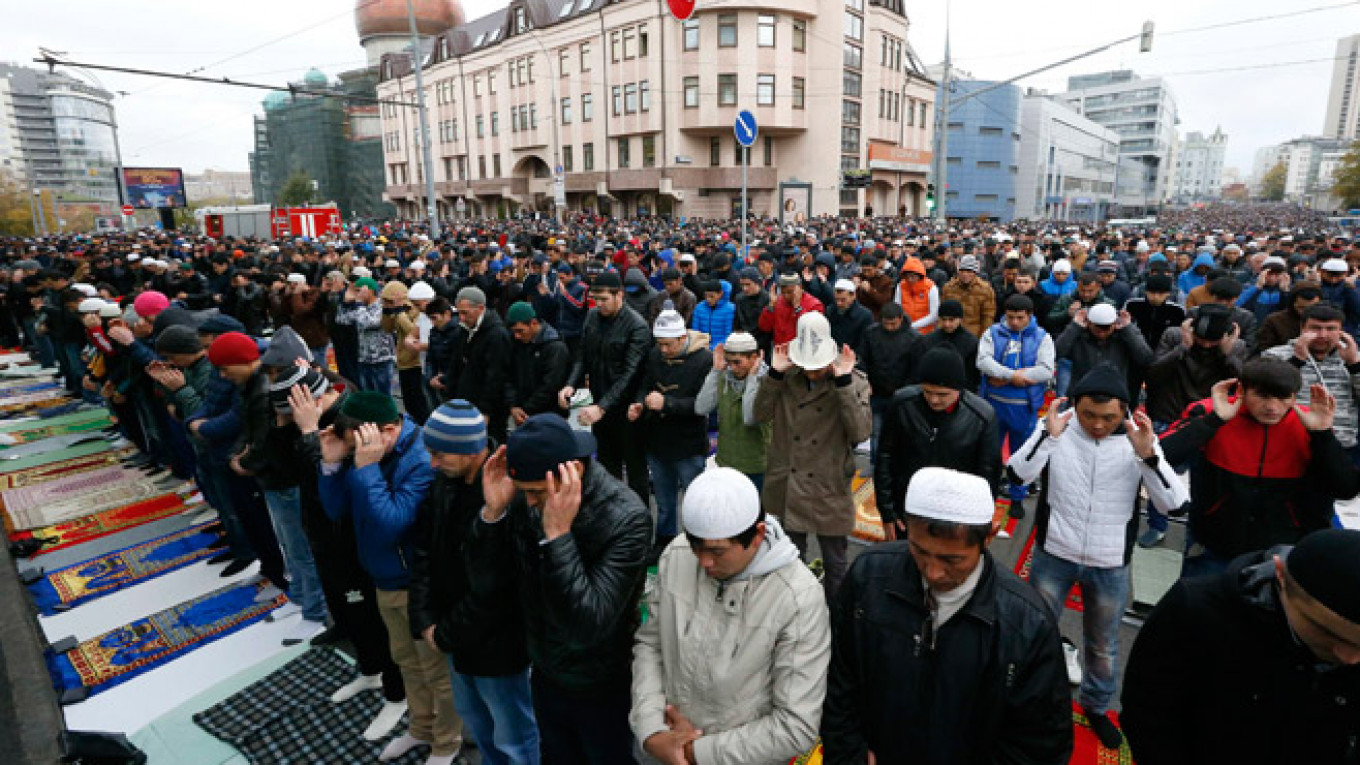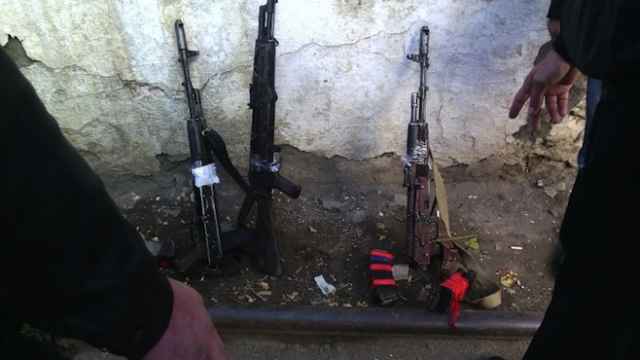With thousands of Russian Muslims pursuing religious education abroad, the country faces a proliferation of extremist Islamic ideology and increased ethnic tensions, the Prosecutor General's Office has warned.
"If in the 1990s, this [the import of nontraditional forms of Islam] was carried out by foreign preachers, now more and more frequently it is done by our own youth who have gone overseas to receive a religious education," Deputy Prosecutor General Viktor Grin warned in comments carried by the Interfax news agency. Grin referenced data made available by the Interior Ministry and the Federal Security Service.
"Foreign Islamic educational institutions not only offer significant funds from charity donations, but also receive direct government support," Grin said, noting that Russia's own educational institutions must become more competitive in this sphere.
These religious study-abroad programs likewise contribute to ethnic tensions at home by importing social norms and behavior that are considered abnormal in Russia, Grin said.
"Migrants' negligent attitudes toward local practices and traditions is frequently aggravating for the native [Russian] community, provoking a growth in ethnic friction," Grin was cited as saying.
Many young people from Russia's predominantly Muslim republics Chechnya and Dagestan have studied Islam abroad, in the United Arab Emirates, Syria and Egypt. Likewise, Islamic clerics from these countries have visited Russia to offer workshops and lectures.
Although Grin did not elaborate on what specific educational themes were thought to be worrisome, Dagestan has seen numerous radical Salafi preachers emerge in recent years advocating the implementation of sharia law.
Their growing popularity is believed to be a factor in fueling the militant insurgency in the region, a phenomenon that has made shootouts between police and extremists a regular occurrence.
The expansion of the Salafi movement has also pitted hardline militants against the more moderate Sufi Muslims in the region, who have increasingly become targets in guerilla-style attacks by insurgents.
Contact the author at a.quinn@imedia.ru
A Message from The Moscow Times:
Dear readers,
We are facing unprecedented challenges. Russia's Prosecutor General's Office has designated The Moscow Times as an "undesirable" organization, criminalizing our work and putting our staff at risk of prosecution. This follows our earlier unjust labeling as a "foreign agent."
These actions are direct attempts to silence independent journalism in Russia. The authorities claim our work "discredits the decisions of the Russian leadership." We see things differently: we strive to provide accurate, unbiased reporting on Russia.
We, the journalists of The Moscow Times, refuse to be silenced. But to continue our work, we need your help.
Your support, no matter how small, makes a world of difference. If you can, please support us monthly starting from just $2. It's quick to set up, and every contribution makes a significant impact.
By supporting The Moscow Times, you're defending open, independent journalism in the face of repression. Thank you for standing with us.
Remind me later.






